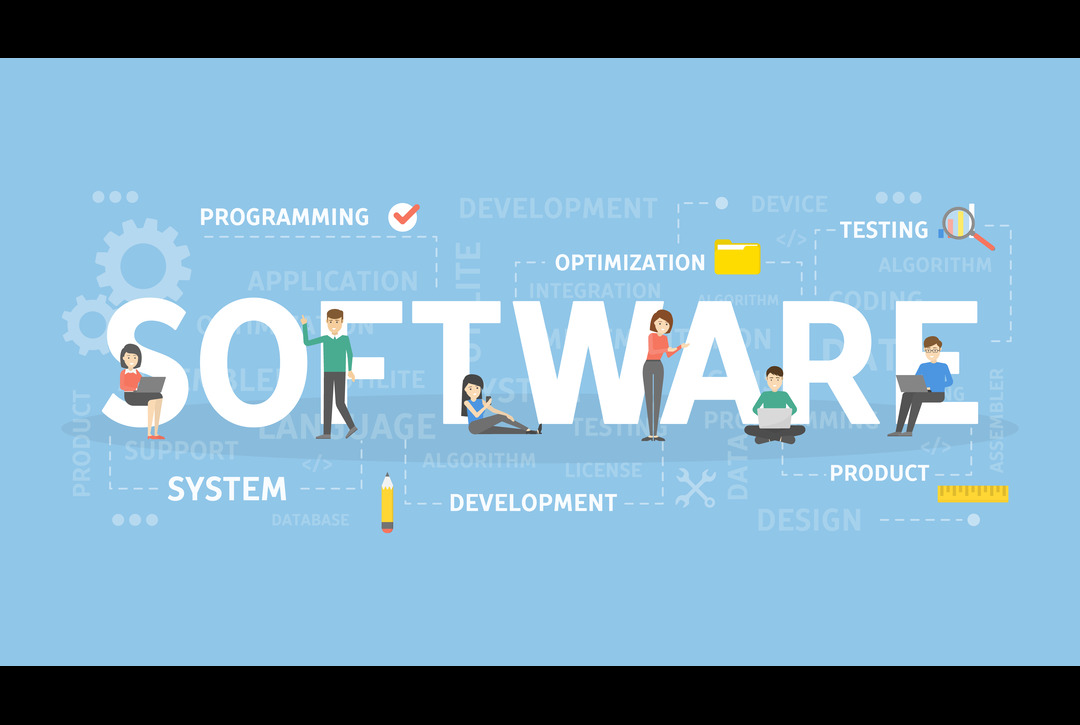In today’s business world, people are always trying to be more productive. Businesses are always looking for new ways to improve workflows, make operations more efficient, and give their workers the tools they need to do more. Off-the-shelf software is a good place to start, but businesses often have to change the way they do things to work around the software’s limitations. This is where custom software development becomes a must-do, not a nice-to-have, if you want to fully unlock your productivity potential.
Creating custom software that fits your business’s specific needs, goals, and workflows is what expert custom software development is all about. Custom software is made from the ground up to work for your business, not the other way around, unlike one-size-fits-all solutions. You can get rid of inefficiencies, automate tasks that need to be done over and over, and give your team the exact tools they need to do their best by aligning technology with your business’s needs. This article talks about how hiring an expert to develop custom software can help your whole company be more productive.
Grow Your Business with a Customised Software
The Limitations of Off-the-Shelf Software
Before we talk about the benefits of custom solutions, we need to talk about the problems that come with pre-packaged software. Tools like generic CRMs, project management platforms, and ERP systems are easy to find and often don’t cost much, but they have big drawbacks that can hurt productivity in the long run:
Forced Workarounds
Off-the-shelf software is made for a wide range of users, so its features are not specific to any one group. Your teams may have to come up with complicated, manual workarounds to make up for the difference between what the software can do and what your business really needs. These workarounds don’t always work well, are likely to make mistakes, and make employees angry.
Feature Bloat and Unnecessary Complexity
These apps often have a lot of features that you won’t use in order to appeal to as many people as possible. This “feature bloat” can make the software messy, slow, and hard to use, which makes it harder to learn and keeps users from getting their work done.
Integration Challenges
Many modern SaaS products come with APIs, but it can be hard and expensive to get them to work with your current technology stack. Poor integration creates data silos, which are systems that keep information in one place and make it hard to share with others. This means that employees have to spend a lot of time entering and reconciling data by hand.
Scalability Issues
A solution that works for a team of ten people might not work for a company with a hundred people. When your business grows, off-the-shelf software may not be able to keep up. This can cause performance issues, higher licensing costs, and the need to move to a new system, which can be expensive and disruptive.
These limits make a “productivity tax,” which is a hidden cost that comes from lost time, unhappy workers, and missed chances. The best way to get rid of this tax is to hire an expert to make custom software.
How Custom Software Development Boosts Productivity
When you pay for custom software development, you’re getting a tool that works perfectly for your business. This perfect fit leads to real increases in productivity in a number of important areas.
1. Streamlining and Automating Workflows
Every business has its own set of processes that have gotten better over time. Instead of making you change your workflows, custom software can be made to copy and improve them.
Task Automation
Doing the same thing over and over again by hand is a big waste of time. A custom app can handle everything from entering data and making reports to letting customers know about new products and keeping track of stock. A sales team might use a custom CRM that automatically records calls, sends follow-up emails based on set triggers, and makes daily reports on how well the team is doing. It lets salespeople do what they do best: make connections and close deals.
Process Optimisation
An expert software partner will look at your current workflows during the development process to find problems and areas where things could be done better. The software that comes out of this process isn’t just a digital copy of what you’re already doing; it’s a better, more efficient version. This group analysis often finds ways to make things better that the business itself might have missed.
2. Centralising Data and Creating a Single Source of Truth
Data silos are well known for making people less productive. When information is spread out over different spreadsheets, apps, and email inboxes, workers waste a lot of time looking for what they need.
Unified Dashboards
Custom software development can connect to your different systems, like finance, sales, and operations, and bring all the data together in one dashboard. This gives a complete picture of the business in real time, which helps people make decisions faster and with more information. For example, a project manager could have a dashboard that shows all of the project’s timelines, budget status, team availability, and client communications in one place.
Eliminating Redundant Data Entry
When systems aren’t connected, workers have to enter the same information into more than one platform. A custom solution with strong integrations makes sure that data entered once is automatically sent to all relevant systems, which lowers the risk of human error and saves a lot of time.
3. Enhancing Employee Experience and Adoption
Employees are more likely to use software that is easy to understand and fun to use. People don’t want to use the tools that are given to them when the interfaces are clunky and hard to understand.
User-Centric Design (UX)
Custom software development experts put a lot of emphasis on User Experience (UX) design. They talk to your end users directly to find out what they need, what bothers them, and what they like. The end result is an application with a user-friendly interface that doesn’t need much training and lets workers get things done quickly and well.
Mobile Accessibility
As more people work from home or in a hybrid setting, they need to be able to use important business tools from anywhere. With a “mobile-first” approach, you can make a custom app that works well on desktops, tablets, and smartphones. This flexibility lets people be productive while they’re on the go, whether it’s a field technician updating a job status or a CEO looking over performance metrics before a meeting.
4. Providing Actionable Business Intelligence
You can only get useful information from data if you can make sense of it. You can add powerful analytics and reporting tools to custom software that are tailored to your specific Key Performance Indicators (KPIs).
Customised Reporting
You don’t have to try to change generic report templates; you can have reports made to your exact specifications. Custom reporting gives you exactly the information you need without any extra noise. You can use it to track customer lifetime value, measure the efficiency of a production line, or figure out the return on investment of a marketing campaign.
Predictive Analytics
Advanced custom solutions can use machine learning models to look at past data and make predictions about future trends. A retail business could use a custom app to predict how many of a certain product people will want, which would help them manage their inventory better and avoid running out of stock or having too much of it. This proactive way of making decisions gives you a big edge over your competitors.
The Strategic Value of a Custom Software Development Company
It’s a big deal to go with custom software development, and the success of the project depends on how skilled your development partner is. A good custom software company does more than just write code; they work with you to help your business succeed. With them, the development process becomes a group effort with these important steps.
1. Discovery and Strategy
The first step is to really get to know your business. The development team will hold workshops with important people and end users to learn about your goals, problems, and current workflows. This step is very important for figuring out what the project will include and making sure the final product fits with your strategic goals.
2. Design and Prototyping
UX/UI designers will make wireframes and interactive prototypes based on what they learned during the discovery phase. You can see and feel how the app will work before any code is written, which lets you give feedback early and often.
3. Agile Development
Most professional companies use an Agile development method. The project is divided into small, manageable “sprints,” and at the end of each sprint, a working version of the software is delivered. This iterative method lets you be flexible, get feedback all the time, and make sure the project stays on schedule and within budget.
4. Testing and Quality Assurance
Throughout the custom software development process, the software is put through a lot of tests to find and fix bugs, make sure it is secure, and make sure it meets all the requirements.
5. Deployment and Training
After the software is ready, the development partner will take care of the deployment and give your team all the training they need to get started right away.
6. Ongoing Support and Evolution
The software’s launch is just the start. A real partner will give you ongoing support, maintenance, and a plan for future improvements so that the app can keep up with your business.
Final Words
Professional custom software development gives you a clear way to get around these problems. By making a solution that fits your unique processes perfectly, you give your employees tools that feel like a natural part of their work. You save time, get rid of data silos, and give people the information they need to make smart, proactive decisions.
Buying custom software is an investment in your people and your processes. It says that your business model is different and valuable, and it needs technology that supports and improves it. When you work with an expert development team, you’re not just making an app; you’re making a powerful, long-lasting engine for productivity that will help your business grow for years to come.We are a renowned custom software development company in UK. Just contact us to bring your ideas to life.










